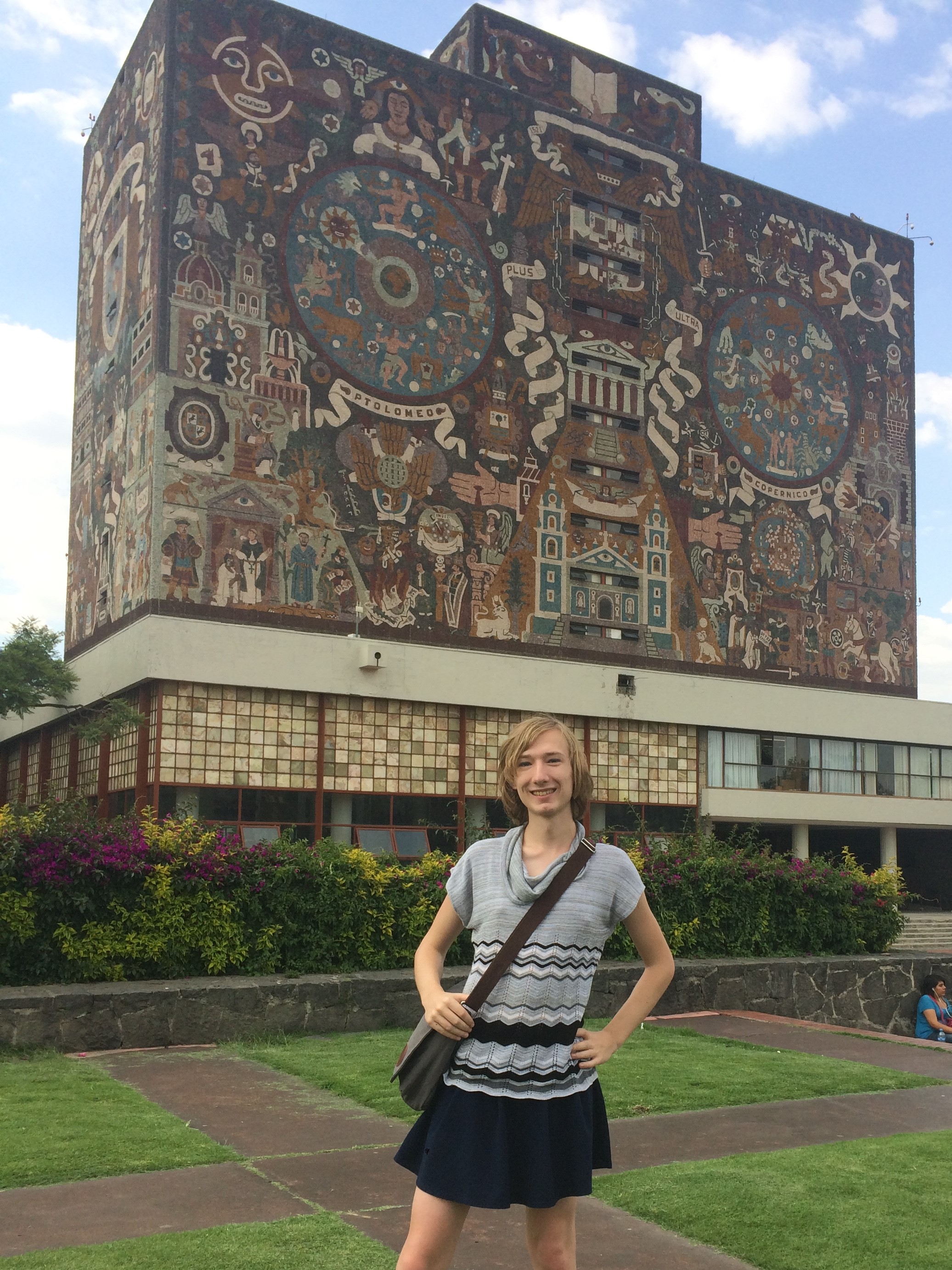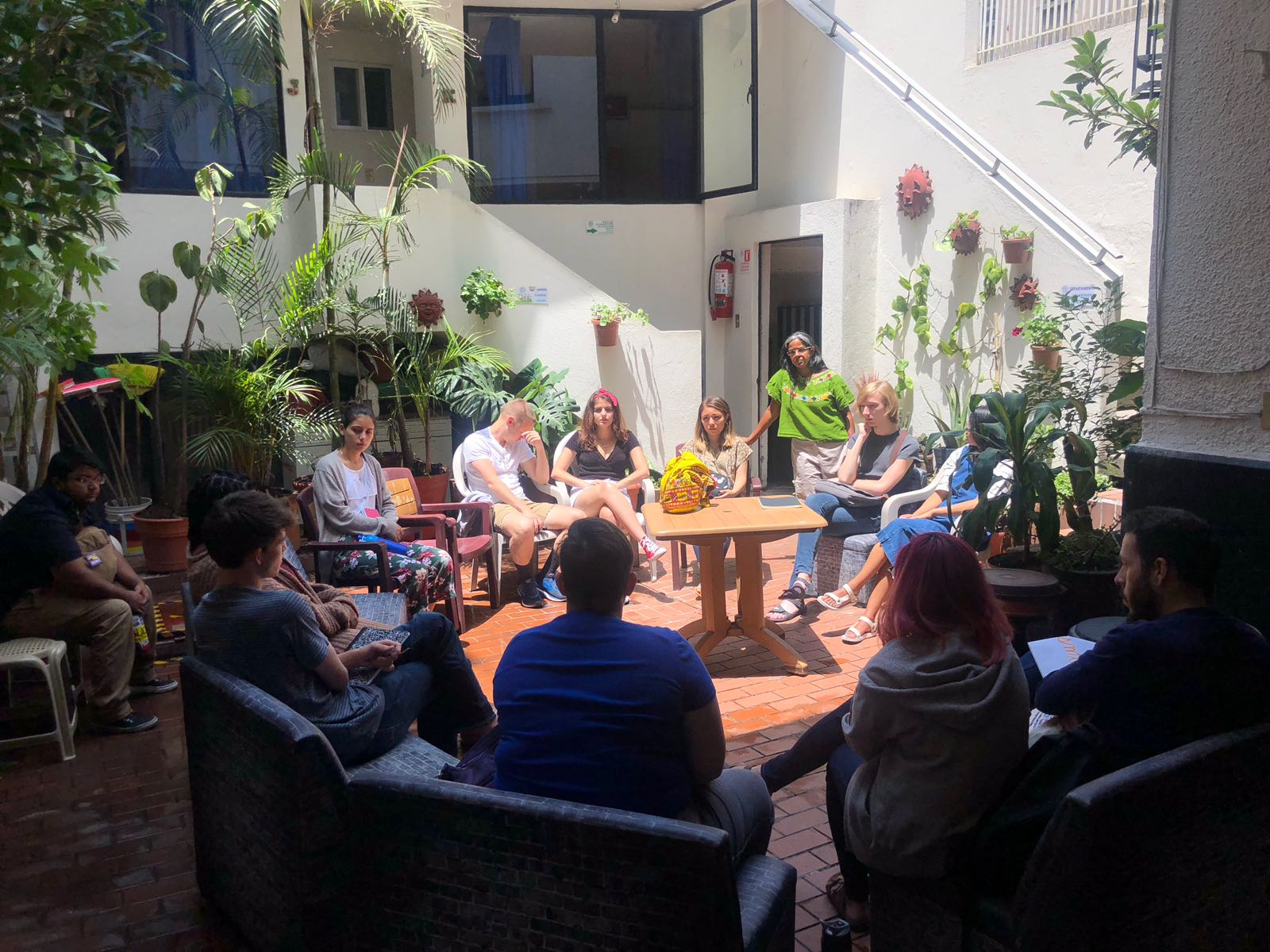The passage from home to foreign land is more than just a change of geography, it’s a change of mode. It’s a shift from the relaxing yet somewhat dull confines of a lonely summer break to the exciting yet slightly frightening experience of foreign study. Hi, my name is Alex and today marks my sixth day in Ciudad de Mexico. I’m a genderqueer identifying, Interdisciplinary Honors student at the University of Washington and during this trip I will be studying queer communities, public health and migration throughout our southern neighbor.

Me at the National Autonomous University of Mexico standing in front of the Central Library
Coming into my program, I had one expectation, to learn. I wanted a blank slate and knew that too many expectations sets one up for disappointment. Surely enough, by day one, I knew I would not be let down. The culture here is so peculiar to someone who is so accustomed to the Seattle freeze*. The people are immensely more social in ways that can be interpreted as both good and bad. It’s the small things I notice most. People walking tight corridors, pushing past each other rather than waiting, street vendors both in the form of stands and standing salesman walking person to person requesting purchase. In the taxi from the airport, I noticed an interesting phenomenon I dubbed reverse window shopping. At a red light, vendors carrying boxes of goods would walk window to window between cars for potential customers. I should also note that it was barely 7:00 AM! Greetings are much more active with all the face kissing, hugging and ‘buenos dias’es you could hope for. Meal times shift from 8:00 am, noon, and 6:00 pm for breakfast through dinner respectively to 8:00 am (no problem) 3:00 pm (okay a little late now) and 10:00 pm (I’m starving).
Yet almost none of this registered as a cultural shock as it was defined in all my orientations and pre departure meetings. Besides the meal times, I enjoy many of these changes. I’m already thinking about how I can bring back the lessons I’ve learned in activism and population health. One of the most impactful projects I learned about were the Las Patronas. This was a group who lived near a train network often used by migrants known as ‘The Beast.’ When these railway adjacent residents found migrants who hadn’t eaten in four days, they jumped at the opportunity to provide them sustenance. Since then, they’ve formed a group that constantly makes food for the passing travellers.
What astounds me with these people’s work is their dedication to charity without return. In the United States, we always have such a focus on some return as if charity is an investment. The return comes in many forms, both physical and psychological. It can be a T-shirt, keychain, virtual adoption of an animal, etc. It can even be as simple as getting an update letter on how your money was used. Yet these people would give up large portions of their wealth and time to feed these people for the simple reason of it being the right thing to do. They never found out if these migrants made it to their destination or what they thought of the food’s quality. Yet Las Patronas will go as far as to say they’ll be doing this work the rest of their lives.

My class discussing reflection exercises at Casa de Los Amigos, the hostel we are staying in
It’s so inspiring as to make me wonder about the nature of the exchange in our country, the hyper emphasis on “the art of the deal,” so to speak. How selfish must we be to expect a return on charity? It has left me wondering…
How do I integrate these practices in my own life?
How can I bring these lessons back home?
How much more knowledge can I absorb during this month when this is just a small inkling of my many experiences over the past five days?
More to come in further writings.
*Seattle Freeze is a term used to describe the antisocial and often introverted nature of many residents in the city.



